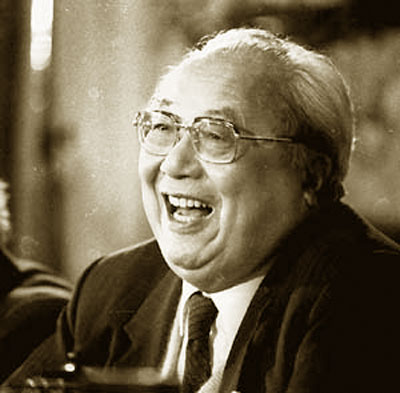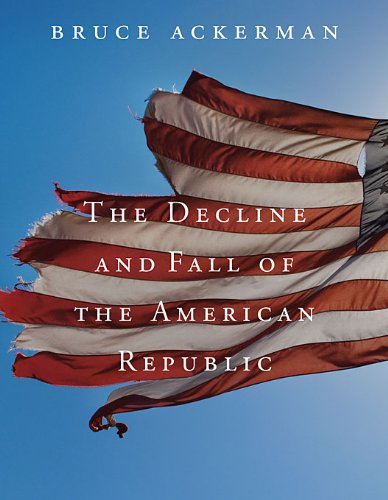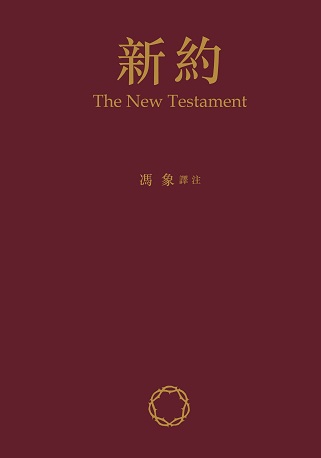钱锺书先生诞辰一百周年

1910.11.21.-2010.11.21.

1910.11.21.-2010.11.21.
Read the report on Intellectual Property Watch.
Larry Lessig speaking to Intellectual Property Watch at the World Intellectual Property Organization, 4 November 2010.
愧赧对旧作,无心论短长。
路遥试马力,坎坷出文章。
毁誉在人口,浮沉意自扬。
涓滴乡土水,汇归大海洋。
岁月春水逝,老来羡夕阳。
盍卷寻旧梦,江村蚕事忙。

费孝通 1910.11.2.-2005.4.24.
「何謂知言?」曰:「詖辭知其所蔽,淫辭知其所陷,邪辭知其所離,遁辭知其所窮。生於其心,害於其政,發於其政,害於其事。聖人復起,必從吾言矣。」——《孟子.公孫丑》
The distinguishing mark of high-level perception is that it is semantic: it involves drawing meaning out of situations.–Douglas Hofstadter, Fluid Concepts & Creative Analogies
* * * * * *
甲部. 現在是張達民要盡快自辯,不是馮象
環球聖經公會駐會學者張達民博士在〈文學氣象與學術假象──評馮象譯注的《新約》(之一)〉一文指出(恩怨緣起,見註一):
馮象借用NJB,是鐵證如山,不是偶一為之,而是系統性的現象(單是馬太福音也有幾十個顯而易見的例子,如二11、二16、二17-18的插注與NJB同章節的注f,h,i)。有興趣的讀者可以找一本NJB與馮譯作些「來源鑒別」的研究。筆者在此不必再打一匹死馬了。
他的所謂「借用」,我理解就是「抄襲」,對一位有名聲的學者來說,這是最嚴厲的指控,搞不好馮象教授就淪為另一個汪暉了。張博士的指控證據,主要見於上面那篇網絡文章,他從夾注及翻譯文字(特別是所謂「錯譯」)兩方面,一共舉出了七個具體例子作證,沒舉出的還有更多,「單是馬太福音也有幾十個顯而易見的例子」。
但我翻一翻馮教授的《新約》,正文567頁,每頁夾注至少10個,全書即有約五千多個注。對比起這五千多個夾注,張博士的四大夾注例證(先假定這四大例證毫無疑點地成立)是否有點單薄呢?張博士在時代論壇曾回應我說:
任何對統計學有些認識的人(筆者以前曾任職精算工作),都會看出這些雷同的組合有很強的統計顯著性(statistical significance),顯示兩者不是獨立的。
我不懂統計學,也從未任職精算,所以很幼稚地問一個問題,所謂「系統性的現象」,真的可以從芸芸五千多個注中抽三四個例就可說明?張博士的論證比光速還要快,完全違反了物理定律。
 The Decline and Fall of the American Republic by Bruce Ackerman. Harvard University Press 2010. ISBN-10: 0674057031; ISBN-13: 9780674057036.
The Decline and Fall of the American Republic by Bruce Ackerman. Harvard University Press 2010. ISBN-10: 0674057031; ISBN-13: 9780674057036.
Review
In The Decline and Fall of the American Republic, Bruce Ackerman, one of our nation’s most thoughtful and most influential constitutional theorists, sounds the alarm about the dangers posed by our ever-expanding executive authority. Those who care about the future of our nation should pay careful heed to Ackerman’s warning, as well as to his prescriptions for avoiding a constitutional disaster.
–Geoffrey R. Stone, University of Chicago Law School, author of Perilous Times: Free Speech in Wartime: From the Sedition Act of 1798 to the War on Terrorism
Alarmist or alarming, The Decline and Fall of the American Republic, is a serious attention-getter. Bruce Ackerman has adroitly woven recent changes in our institutional arrangements into a provocative argument that the expanding powers of the 21st century presidency have put our constitutional order at risk.
–Joyce Appleby, UCLA, author of The Relentless Revolution: A History of Capitalism
At once audacious and plain spoken, Ackerman offers a fierce critique of democracy’s most dangerous adversary: the abuse of democratic power by democratically elected chief executives.
–Benjamin R. Barber, author of Jihad vs. McWorld: How Globalism and Tribalism Are Reshaping the World and Consumed: How Markets Corrupt Children, Infantilize Adults, and Swallow Citizens Whole
Product Description
Bruce Ackerman shows how the institutional dynamics of the last half-century have transformed the American presidency into a potential platform for political extremism and lawlessness. Watergate, Iran-Contra, and the War on Terror are only symptoms of deeper pathologies. Ackerman points to a series of developments that have previously been treated independently of one another—from the rise of presidential primaries, to the role of pollsters and media gurus, to the centralization of power in White House czars, to the politicization of the military, to the manipulation of constitutional doctrine to justify presidential power-grabs. He shows how these different transformations can interact to generate profound constitutional crises in the twenty-first century—and then proposes a series of reforms that will minimize, if not eliminate, the risks going forward.
The book aims to begin a new constitutional debate. Americans should not suppose that Barack Obama’s centrism and constitutionalism will typify the presidencies of the twenty-first century. We should seize the present opportunity to confront deeper institutional pathologies before it is too late.
About the Author
Bruce Ackerman is Sterling Professor of Law and Political Science at Yale University.
 Law’s Allure: How Law Shapes, Constrains, Saves, and Kills Politics, by Gordon Silverstein. Cambridge University Press 2009. ISBN-10: 0521721083; ISBN-13: 9780521721080.
Law’s Allure: How Law Shapes, Constrains, Saves, and Kills Politics, by Gordon Silverstein. Cambridge University Press 2009. ISBN-10: 0521721083; ISBN-13: 9780521721080.
Winner of the C. Herman Pritchett Prize for the best book published in the field of law and courts in 2009 from the Law & Courts Section of the American Political Science Association.
Frontmatter [PDF]; Excerpt [PDF]
Review
“Law’s Allure is a masterful treatment of the causes and consequences of the juridification of American politics. Beautifully written and displaying Silverstein’s encyclopedic knowledge of American constitutional law and practice, the book helps us understand how the courts can both enable and disable our politics under different circumstances. Silverstein integrates both abstract principle and bare-knuckle politics into the account, resulting in a volume that is at the same time profound and accessible. A major contribution that will enlighten both scholars and the informed public.”
— Tom Ginsburg, The University of Chicago Law School
“Professor Silverstein provides an original and compelling analysis of the complex relationships between law and politics. His insights that juridification in the United States is on the rise, that juridification is more than government by judiciary, and that escaping from politics has numerous hidden costs are interesting, important and likely to provoke a good deal of conversation both within and without political science.”
— Mark Graber, University of Maryland
“Gordon Silverstein has given us a superb analysis of juridification, the messy interaction of supposedly objective legal rules with partisan interests that often produce public policy. Through both general reasoning and close studies of specific cases, he demonstrates how these forces noisily, and sometimes angrily, engage to create not a seamless web but a jig-saw puzzle whose jagged pieces never fit neatly together. Neither students of public law nor public policy can afford to miss this splendid book.”
— Walter F. Murphy, Princeton University
“Law’s Allure is a breathtakingly good book. Tracing through a substantial number of important case studies ranging from abortion and school desegregation through campaign finance and environmental litigation to the tobacco cases and more, Gordon Silverstein gives us a new paradigm for thinking about the role of courts in American politics, one that is more complete, convincing, and persuasive than we have ever had before in a single volume.”
— Kim Lane Scheppele, Princeton University
“A valuable contribution to the next generation of studies on constitutional politics. With well-chosen case studies and a useful analytical framework, Gordon Silverstein helps identify the whys, hows, and so-whats of interactions between politicians and judges in shaping public policy.”
— Mark Tushnet, Harvard Law School
“Law’s Allure: How Law Shapes, Constrains, Saves and Kills Politics provides an original and compelling analysis of the complex relationships between law and politics. Professor Silverstein’s insights that juridification in the United States is on the rise, that juridification is more than government by judiciary, and that this escape from politics has numerous hidden costs are interesting and important. The case studies are well written and informative, the research is solid, and the conclusions likely to provoke a good deal of conversation both within and without political science…Professor Silverstein provides a far more nuanced account of the relationship between law and politics than found in the existing political science literature.”
— Mark Graber, Balkinization blog
 Religion in Legal Thought and Practice, by Howard Lesnick. Cambridge University Press 2010. ISBN: 052113448X; 9780521134484.
Religion in Legal Thought and Practice, by Howard Lesnick. Cambridge University Press 2010. ISBN: 052113448X; 9780521134484.
Table of contents; Preface [PDF]; Excerpt [PDF]
Product Description
This book examines moral issues in public and private life from a religious but not devotional perspective. Rather than seeking to prove that one belief system or moral stance is right, it undertakes to help readers more fully understand the effect of religious beliefs and practices on ways of conceiving and addressing moral questions, without having to accept or to reject any specific religious outlook. It shows how the similarities between religions and the differences within any one religion are more important than the reverse. The book asks
• Where do moral imperatives come from, and how do the answers found in religion and law interact?
• How does the fact that a moral norm is grounded in religion affect our thinking about it?
• What is the significance of the differences (and similarities) between religious and secular sources of moral norms?
Book Description
This book examines moral issues in public and private life from a religious but not devotional perspective. Rather than seeking to prove that one belief system or moral stance is right, it undertakes to help readers more fully understand the effect of religious beliefs and practices on ways of conceiving and addressing moral questions, without having to accept or to reject any specific religious outlook.
 哥伦比亚大学法学院吴修铭教授的新作,隆重推荐:
哥伦比亚大学法学院吴修铭教授的新作,隆重推荐:
The Master Switch: The Rise and Fall of Information Empires, by Tim Wu.
Knopf, 2010. ISBN-10: 0307269930. ISBN-13: 9780307269935
From Publishers Weekly
According to Columbia professor and policy advocate Wu (Who Controls the Internet), the great information empires of the 20th century have followed a clear and distinctive pattern: after the chaos that follows a major technological innovation, a corporate power intervenes and centralizes control of the new medium–the master switch. Wu chronicles the turning points of the century’ s information landscape: those decisive moments when a medium opens or closes, from the development of radio to the Internet revolution, where centralizing control could have devastating consequences. To Wu, subjecting the information economy to the traditional methods of dealing with concentrations of industrial power is an unacceptable control of our most essential resource. He advocates not a regulatory approach but rather a constitutional approach that would enforce distance between the major functions in the information economy–those who develop information, those who own the network infrastructure on which it travels, and those who control the venues of access–and keep corporate and governmental power in check. By fighting vertical integration, a Separations Principle would remove the temptations and vulnerabilities to which such entities are prone. Wu’ s engaging narrative and remarkable historical detail make this a compelling and galvanizing cry for sanity–and necessary deregulation–in the information age.
Review
“An explosive history that makes it clear how the information business became what it is today. Important reading.”
—Chris Anderson, author of The Long Tail: Why the Future of Business is Selling Less of More and Free: How Today’s Smartest Businesses Profit by Giving Something for Nothing; editor of Wired Magazine
“Wu’s book is both a masterful media history and an outline for the future of the digital age. The Master Switch brilliantly describes the never-ending tension between open and closed media, as it has effected everything from the printing press to the web, and details ways society might be able to prevent the disastrous closing down of digital freedoms currently threatening the open internet.”
—Clay Shirky, author of Here Comes Everybody: The Power of Organizing Without Organization and Cognitive Surplus: Creativity and Generosity in a Connected Age
“Every now and then a book changes the way we understand the world. The Master Switch is such an achievement; it is a rigorous, imaginative and enthralling history of the Twentieth Century struggle among utopian innovators, profit-maximizing monopolists, and their often-hapless regulators. Wu has convincingly reinterpreted our media past, and by doing so, he has illuminated the risks to open media and Internet-enabled innovation that confront us in the present.”
—Steve Coll, President, New American Foundation and Pulitzer Prize winning author of Ghost Wars: The Secret History of the CIA, Afghanistan, and Bin Laden, from the Soviet Invasion to September 10, 2001
“A masterpiece.”
—Lawrence Lessig, Director of the Edmond J. Safra Foundation Center for Ethics and Professor of Law, Harvard University
“Ranging from the early days of Theodore Vail’s AT&T to the current battle between Google and Apple, Tim Wu’s work is a must read for those who want to know about the future of the Internet. The Master Switch is brilliant, with a distinctive voice that comes through on every page.”
—Josh Silverman, CEO, Skype
“A free and open Internet is not a given. Indeed, corporate interests are working feverishly to seize control of it. Drawing on history, The Master Switch shows how this could easily happen and why we are at risk of losing the freedom we now take for granted. A must-read for all Americans who want to remain the ones deciding what they can read, watch, and listen to.”
—Arianna Huffington
1
王朔和他的同时代作家比起来,起点不算高。在刘索拉写出她的《你别无选择》徐星写出《无主题变奏》莫言写出《透明的红萝》《红高梁》马原写出《冈底斯的诱惑》《虚构》的时候,他在写什么呢?在写《空中小姐》。这是什么东西?通俗言情故事而已,无论是立意、结构和贯穿其中的情调,都是对西格尔那要现靡七十年代的流行小说《爱情故事》的模仿。王朔那时的趣味相当于今天一个刚失恋的18岁女孩,自以为历尽风雨,有大款出钱让她做歌手,于是在自己的第一支单曲中哀怨地演唱那一段痛史。这痛史其实是一段感情游戏,一唱起来也知道这东西的无聊,于是拼命夸大感受,针尖大的窟窿透过一火车的眼泪,使这看上去多少像是一次心碎,赚回一些眼泪就觉得是个成功了。
后来被他当作资本,津津乐道说个不休,一遇批评便拿出来遮羞的所谓反英雄反文化颠覆主流话语记录大乱之后一代青年行状和心路历程云云,其实是当年刘索拉和徐星首创的写作风格和路数。王朔只是一个跟着哄的,或叫效颦者。我以为王朔在那时并不是一个真正意义上的作者,他几乎没有什么独立的生活态度和观察角度,基本处在他人风格的影响之下,这在他第二部小说《浮出海面》中同样可以看得很清楚。这是雷马克《凯旋门》和《三伙伴》以及海明威《太阳照常升起》的中国版。另一个左右着他的趣味,甚至直接成为他抄袭对象的是一个叫礼平的中国作家。礼平写的《晚霞消失的时候》是八十年代最好的情感小说,曾把王朔看得神魂颠倒,至少一顿饭没吃,一周夜不成寐。他的小说所达到的文字优美和情感撼人程度是王朔从来没在一篇小说中同时达到的。我不是说王朔在情节和语言上对礼平进行了抄袭,他抄袭的是美感,具体说是他笔下的女性人物。他在《浮出海面》中那个女孩子晶身上投注的是礼平在《晚霞消失的时候》中对那个叫南什么的女孩投注的同样目光和丝毫不变的感念。对那种清秀干净有书卷气的女孩子的迷恋从此成为王朔小说中的一个套路。他对女性的认识和欣赏再也没往前走一步,说穿了就是把女性一直当孩子年,这不是女性的幼稚面是他的幼稚和一相情愿。若说他和礼平在对待女性的态度上有什么区别的话,礼平笔下的女性还刻意强调她们的冰雪聪明,而王朔钟情的对象除了单纯就是起来越像傻大姐。我觉得王朔对知识女性有一种恐惧,也话这和他在街上长大的经历有关,像他这路人很容易接受“只有难看的姑娘才读书”的流行偏见,我们都知道这不是事实,这若是真的,那大学里的男生也太可怜了。人总是要找一点优越感才可以继续活下去,什么都不具备的人最后就进行性别歧视。
钱伟长教授于八秩诞辰开始撰写《八十自述》一书,翌年付梓,题赠亲友。一九九八年十月十一月间,《深圳特区报》将《八十自述》全文连载,让更多的人们第一次看到这位历尽坎坷的科学家穿越几十年风雨的简单而真实的身影。
 一九五二年,全国高等学校院系调整之后,毛泽东亲自点将,派在全国青年中有极高威信的青年团干部蒋南翔主政清华。清华大学跟全国所有大学一样,像一部机器,经过肢解、重组,被推到一条新的生产线上。它成了一所只有工科专业的大学(学院)。水木清华,满园春色。当年北平爱国学生运动的领袖人物、校友蒋南翔,决心按照苏联模式,把自己的母校,编织成一个“工程师的摇篮”。
一九五二年,全国高等学校院系调整之后,毛泽东亲自点将,派在全国青年中有极高威信的青年团干部蒋南翔主政清华。清华大学跟全国所有大学一样,像一部机器,经过肢解、重组,被推到一条新的生产线上。它成了一所只有工科专业的大学(学院)。水木清华,满园春色。当年北平爱国学生运动的领袖人物、校友蒋南翔,决心按照苏联模式,把自己的母校,编织成一个“工程师的摇篮”。
然而,身为清华大学教务长(一九五六年任副校长,仍兼此职)的钱伟长先生,很快就站到蒋校长的对立面。
要是没有一九五二年的院系调整,一九五七年的“反右派”运动和一九六六年以后的“文化大革命”,整部中国教育史,整部清华校史和钱伟长的《八十自述》,都不会是今天这个样子。
钱伟长极力主张和鼓吹理工合校。他认为,工科学生要钱伟长教授有理科基础,大学的专业不能分得过细,科学技术日新月异,应着重于培养学生分析问题和解决问题的能力。那时节,新生们一踏进清华园,迎面便是一个巨大的横幅。它的上面写着:清华大学——工程师的摇篮。而钱副校长却说:工程师不可能在这样的“摇篮”里培养出来。他的主张,正与清华园内外的时潮相悖,因而引发了一场历时三个月之久的大辩论。一九五七年一月,他在《人民日报》上发表《高等工业学校的培养目标》一文,意在回答人们对他的责难。
修订版缀言:他的歌与我同在
目錄 [PDF]
新書試讀 [PDF]
譯經的目的,一是為中文讀者(包括信友和聖經學界)提供一個可靠的中文學術譯本,二是力求讓《聖經》立於中國文學之林,進入漢語主流文化。譯者馮象說的是聖經學,而非任何基督教宗派的神學或教義。傳教“牧靈”跟做學問,是完全不同的事業,沒有哪個譯家可以兼而得之。因此,這個譯本也許會影響到“牧靈”譯本的修訂和術語措辭,但不可能取代其中任何一種。在香港,正如在內地,有哪一個教會不在散發《聖經》,不積極宣道、參與社會建構和社會鬥爭呢?不如此,她就不能够撫慰苦靈,傳布福音,教人立信稱義。在此意義上,譯經,即使是“非教徒”的譯經,也不僅僅是 “文化保育”。聖法的教導、先知的呼喚、耶穌的受難復活的啓示,隨着宗教復興和中國社會行將展開的倫理重建,是會為越來越多的國人聆聽而認識的。一個日益多元化的容納不同信仰的社會,需要這樣一份“生命的糧”。(《約翰福音》6:35)
跟《摩西五經》《智慧書》修訂一樣,本《新約》修訂版,譯文主要是「微調」,進一步節儉文字,錘煉風格;讓經書的不同作者,及其筆下呈現的不同性格和思想立場,發出不同的聲音。《新約》從希臘文普通話(koine)迻譯為現代語言,包括漢譯,必然也是極易陷於「力不從心」的境地的。故而譯經人除了準確理解原文,能探求並領悟聖言的意境,還要耳朵對母語/目的語十分敏感,善於創造新的表達;否則就一定無力承接聖言的託付。修訂版按頁數估計,譯文的變動加上注文增刪,大約不下八九千處。
初版:

《新约》[The New Testament],冯象译注。
牛津大学出版社(香港),2010年。
ISBN: 9780193958944.
金庸的东西我原来没看过,只知道那是一个住在香港写武侠的浙江人。按我过去傻傲傻傲的观念,港台作家的东西都是不入流的,他们的作品只有两大宗:言情和武侠,一个滥情幼稚,一个胡编乱造,都不叫个东西。尤其是武侠,本是旧小说一种,80年代新思潮风起云涌,人人惟恐不前卫,看那个有如穿缅裆裤戴瓜皮帽,自己先觉得跌份。那时我看人是有个尺子的,谁读琼瑶金庸谁就叫没品位,一概看不起。琼瑶是牢牢钉在低幼的刻度上,她的拥戴者一直没超出中学年龄,说起喜欢的话也是嫩声嫩气,也就是一帮歌迷捍卫自己的偶像。她是有后来者的,大陆港台大批小女人出道,把她那一套发扬光大。现在那些玩情调的女人说起琼瑶都撇嘴,全改张爱玲了。
金庸可不一样,读的人越来越多,评价越来越高,有好事者还拉下茅盾添上他,把他列为七大师之一,两方面发生了一些口角。像每个偏执自大的人一样,我也对发生在新闻纸上的评论不屑一顾,只重视周围小圈子朋友的判断,并不在乎他们的社会地位和公众名声。他们中已然有了一些金庸爱好者。有一个人对我说:金庸小说的文字有一种速度感,这是他读其他作家作品感受不到的。有一个人讲:金庸的武侠对人物的塑造是有别于旧武侠的,像韦小宝、段誉这等人物在旧武侠中是根本不可能出现的,近于现代小说中的“反英雄”。更多的人出差带着一套金庸,晚上睡不着就看,第二天眉飞色舞与同好聊个没完,言谈之中也带出一二武术招数,俨然两大高手切磋武学,遇到我们这种金庸盲便讪讪笑道:看个热闹,换换脑子。接着往往也要再三相劝:你也看看你也看看,没那么差。被人劝的次数多了,我也犹豫,要不就找来看看,万一好呢,也别错过去。第一次读金庸的书,书名字还真给忘了,很厚的一本书读了一天实在读不下去,不到一半撂下了。那些故事和人物今天我也想不起来了,只留下一个印象,情节重复,行文罗嗦,永远是见面就打架,一句话能说清楚的偏不说清楚,而且谁也干不掉谁,一到要出人命的时候,就从天下掉下来一个挡横儿的,全部人物都有一些胡乱的深仇大恨,整个故事情节就靠这个推动着。这有什么新鲜的?中国那些旧小说,不论是演义还是色情,都是这个路数,说到底就是个因果报应。初读金庸是一次很糟糕的体验,开始怀疑起那些原本觉得挺高挺有卤的朋友的眼光,这要是好东西,只能说他们是睁眼瞎了。有时不经意露出这怀疑,朋友反唇相讥:你才看半本,没有发言权。